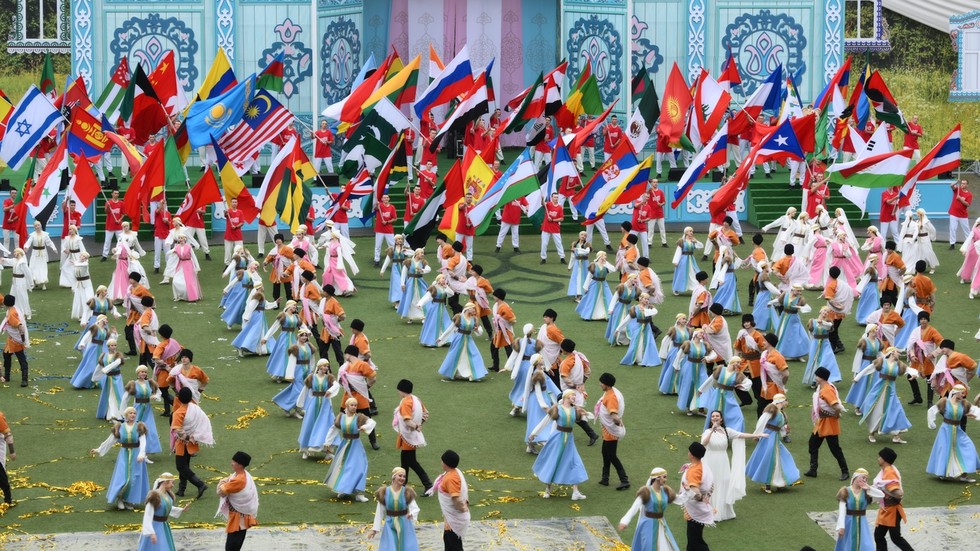BRICS on the Rise: The Role of Africa in Shaping Global Dynamics
As BRICS expands its influence, a major African nation is poised to redefine economic and political landscapes. The rise of BRICS (Brazil, Russia, India, China, and South Africa) signifies a transformative period in global governance and economic power. The inclusion of African perspectives in this group is not just an add-on; it’s a game-changer. In this article, we’ll explore how this coalition, particularly through its African member, is shaping global dynamics and what it means for the future.
The Evolution of BRICS
Initially formed as a loose grouping of emerging economies, BRICS has evolved into a significant force in international relations. Established in 2006, the group aimed to foster dialogue and cooperation among its members, focusing on mutual economic growth and development. The 2010 inclusion of South Africa marked a pivotal moment, as it brought an African voice into the fold, enhancing the group’s representation of developing nations.
The BRICS summit has provided an avenue for member countries to discuss shared concerns and challenges, such as poverty alleviation, sustainable development, and the reform of international financial institutions. As the world faces shifting economic power dynamics, the collective voice of BRICS is increasingly influential in global decision-making.
Africa’s Rising Influence in BRICS
Africa’s presence in BRICS is more than mere representation; it signifies the continent’s growing importance on the global stage. South Africa, as the only African nation in BRICS, serves as a bridge between the continent and the rest of the world. This role enables Africa to voice its unique challenges and opportunities, allowing for a more equitable global discourse.
Several African nations are strengthening their ties with BRICS, reflecting a broader trend of pan-African cooperation. Countries like Nigeria, Kenya, and Egypt are exploring partnerships with BRICS nations, aiming to enhance trade relations and diplomatic ties. This burgeoning relationship is crucial for Africa’s economic development and geopolitical relevance.
The Economic Implications of BRICS Expansion
As BRICS on the rise continues to gain momentum, the economic implications for Africa are profound. Here are some of the key areas where BRICS is expected to impact African economies:
- Trade Opportunities: Increased trade between BRICS nations can open up new markets for African goods. South Africa, for example, has already benefited from enhanced trade relations with China and India.
- Investment Inflows: BRICS countries are increasingly investing in African infrastructure, agriculture, and technology sectors. This investment can help spur economic growth and create jobs.
- Shared Knowledge and Technology: Collaboration among BRICS nations fosters knowledge sharing, which can help African countries improve their technological capabilities and innovation.
Political Dynamics in an Evolving Global Landscape
The rise of BRICS is not just an economic phenomenon; it also has significant political implications. As the United States and Europe face challenges to their traditional influence, BRICS presents an alternative model of governance that emphasizes multipolarity. This shift allows African nations to engage more actively in international affairs, promoting the idea that developing nations can and should have a seat at the table.
For South Africa, being part of BRICS offers a platform to champion African interests on a global scale. The country has actively advocated for the African Agenda in various BRICS summits, pushing for policies that address issues like climate change, trade barriers, and financial stability. This advocacy is crucial as African nations often face unique challenges that require tailored solutions.
The Role of Technology and Innovation
Another critical aspect of BRICS on the rise is the role of technology and innovation in shaping global dynamics. As the world becomes increasingly digitized, the ability to leverage technology can significantly influence economic growth and competitiveness.
BRICS nations are investing in technological advancements, which can benefit African countries in several ways:
- Digital Economy: The growth of the digital economy in BRICS nations can provide African countries with access to new technologies, fostering innovation and entrepreneurship.
- Infrastructure Development: Technological partnerships can enhance infrastructure development in Africa, particularly in telecommunications and energy sectors.
- Skills Development: Knowledge transfer through technology partnerships can help develop a skilled workforce in Africa, equipping young people with the skills needed for the 21st-century job market.
Challenges Ahead: Navigating the BRICS Landscape
While the rise of BRICS presents numerous opportunities for Africa, it is not without challenges. The complexity of navigating relationships within the group can pose difficulties for African nations. Here are some of the challenges that may arise:
- Geopolitical Tensions: The differing interests of BRICS members can lead to geopolitical tensions that may complicate Africa’s position within the group.
- Dependency Risks: Increased reliance on BRICS nations for trade and investment may expose African economies to vulnerabilities, particularly in times of global economic downturns.
- Internal Divisions: African nations must work together to present a united front within BRICS, as internal divisions could weaken their collective bargaining power.
Conclusion: A New Dawn for Africa in Global Affairs
In conclusion, as BRICS on the rise continues to reshape global dynamics, Africa stands at a pivotal juncture. The continent’s engagement with this powerful coalition can redefine its economic and political landscapes, offering new opportunities for growth and collaboration.
The future of Africa within BRICS will depend on how effectively it navigates the challenges ahead while leveraging the numerous benefits that come from being part of this influential group. As African nations unite to assert their interests and advocate for a fairer global order, they can play a crucial role in shaping a more inclusive and equitable world.
Ultimately, the rise of BRICS is not just about the member nations but about the potential for transformative change that can uplift entire continents, particularly Africa. The implications of this shift in global power are profound, and the world will be watching closely as these dynamics unfold.
See more CCTV News Daily



